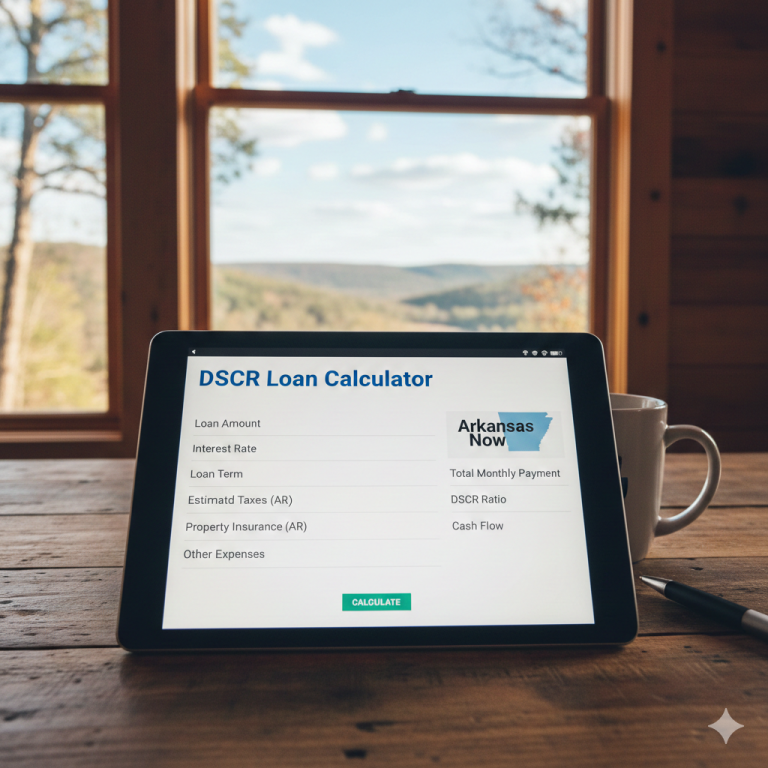Contributing Author & Editorial Review
This article was authored and professionally reviewed to provide accurate, actionable financial insights.

GHC Funding
Contributing Author
Alyssa writes about real estate investing, debt-free strategies, and emerging trends in small business finance with a focus on practical insights.

Samantha Reyes
Senior Content Editor
Samantha specializes in editorial strategy, compliance review, and refining complex finance topics into accessible, reader-friendly guidance.
DSCR Rental Loan Highlights
- Qualification based mainly on property cash flow (DSCR).
- No personal income docs required for many programs.
- Financing for 1–8 unit rentals, portfolios, and many STR/Airbnb deals.
- Up to 80% LTV on purchases and 75% LTV on cash-out (program-dependent).
- 30-year fixed and interest-only options available.
Unlocking Tennessee’s Investment Potential: Your Guide to the Tennessee DSCR Loan
Tennessee DSCR Loan: Tennessee, the Volunteer State, isn’t just famous for its vibrant music scene, stunning natural beauty, and rich history; it’s also a hotspot for real estate investors. From the bustling urban centers of Nashville and Memphis to the charming towns and scenic landscapes, opportunities abound for those looking to grow their property portfolios. But navigating the financing landscape can sometimes feel like hiking the Appalachian Trail – challenging, with twists and turns.
- Unlocking Tennessee’s Investment Potential: Your Guide to the Tennessee DSCR Loan
- What Exactly is a DSCR Loan and Why Does it Matter in Tennessee?
- Typical Requirements for a Tennessee DSCR Loan
- Navigating Tennessee DSCR Loan Rates
- Who Should Consider a Tennessee DSCR Loan?
- The Tennessee DSCR Loan Process: What to Expect
- Why Consider GHC Funding for Your Investment Financing Needs in Tennessee
- Investing in Tennessee: Tips and Resources
- Helpful External Resources for Tennessee Investors:
- Conclusion: Your Tennessee Investment Journey Awaits
Enter the Tennessee DSCR loan. If you’re an investor in the Tennessee real estate market, whether you’re local or looking from afar, understanding DSCR loans is absolutely crucial. These innovative financing tools are changing the game for property investors, offering a streamlined path to securing funding based on the income potential of the property itself, rather than relying heavily on your personal income and tax returns.
This comprehensive guide will dive deep into what a Tennessee DSCR loan is, how it works in the context of the state’s dynamic market, the typical requirements and rates you can expect, and why it might just be the perfect financial tool for your next investment in Tennessee. We’ll also explore how a knowledgeable financial partner, like GHC Funding, can help you leverage these loans to achieve your investment goals.
Need capital? GHC Funding offers flexible funding solutions to support your business growth or real estate projects. Discover fast, reliable financing options today!
⚡ Key Flexible Funding Options:
GHC Funding everages financing types that prioritize asset value and cash flow over lengthy financial history checks:
DSCR Rental Loan
- No tax returns required
- Qualify using rental income (DSCR-based)
- Fast closings ~3–4 weeks
SBA 7(a) Loan
- Lower down payments vs banks
- Long amortization improves cash flow
- Good if your business occupies 51%+
Bridge Loan
- Close quickly — move on opportunities
- Flexible underwriting
- Great for value-add or transitional assets
SBA 504 Loan
- Low fixed rates through CDC portion
- Great for construction, expansion, fixed assets
- Often lower down payment than bank loans
🌐 Learn More
For details on GHC Funding's specific products and to start an application, please visit our homepage:

What Exactly is a DSCR Loan and Why Does it Matter in Tennessee?
DSCR stands for Debt Service Coverage Ratio. At its core, a DSCR loan is a type of mortgage designed specifically for real estate investors. Unlike traditional mortgages that require extensive documentation of your personal income, employment history, and debt-to-income ratio (DTI), a DSCR loan focuses primarily on the investment property’s ability to generate enough income to cover its mortgage payments and operating expenses.
The Debt Service Coverage Ratio is a calculation that lenders use to assess this income-generating capacity. The formula is simple:
DSCR = Net Operating Income (NOI) / Total Debt Service
- Net Operating Income (NOI): This is the property’s income after deducting operating expenses (like property taxes, insurance, property management fees, maintenance, but before mortgage payments). For a potential rental property, this is typically based on projected rental income supported by appraisals and market analysis.
- Total Debt Service: This includes the principal and interest payments for the proposed loan, plus any other debt obligations related to the property (like HOA dues).
A DSCR of 1.0 means the property’s NOI exactly covers its debt obligations. A DSCR of 1.25 means the property generates 25% more income than is needed to cover the debt.
Why is this so relevant for investors in Tennessee?
- Focus on the Asset, Not Just the Borrower: Tennessee’s real estate market offers diverse opportunities, from single-family rentals in suburban areas to multi-unit properties in urban cores and popular short-term rentals in tourist destinations like the Great Smoky Mountains region. Many investors, especially those who are self-employed, have complex income streams, or are rapidly scaling their portfolios, find that their personal income situation doesn’t fit neatly into traditional lending boxes. DSCR loans bypass this hurdle by prioritizing the performance of the asset being financed.
- Easier Qualification for Scaling Investors: As investors acquire more properties, their personal DTI can become a limiting factor for traditional loans, regardless of how well their properties perform. DSCR loans remove this constraint, allowing successful investors to continue growing their portfolios based on the cash flow of their existing and target properties in Tennessee.
- Ideal for Entities: Many experienced real estate investors in Tennessee operate through business entities like LLCs for liability protection and tax purposes. DSCR loans are commonly structured to be held within these entities, further separating investment activities from personal finances.
- Opportunity in a Growing Market: Tennessee’s population and economy have seen significant growth in recent years, leading to strong rental demand in many areas. This makes properties with solid income potential more prevalent, aligning perfectly with the core principle of DSCR lending. Whether you’re looking at Nashville’s booming job market, Memphis’s logistics and healthcare sectors, Knoxville’s university influence, or Chattanooga’s revitalization, income-generating properties are key.
In essence, the Tennessee DSCR loan is a powerful tool that aligns financing with the reality of real estate investing – that the property itself is a business designed to generate income.
Typical Requirements for a Tennessee DSCR Loan
While specific requirements can vary between lenders, there are common benchmarks you’ll encounter when seeking a Tennessee DSCR loan. Keep in mind that DSCR lenders are focused on risk associated with the property’s cash flow and the borrower’s experience and financial stability outside of traditional income verification.
Here are the typical requirements:
- Debt Service Coverage Ratio (DSCR): This is the most critical factor. Most lenders require a minimum DSCR of 1.0 or higher. A ratio of 1.20 or 1.25 is common, indicating a healthy cash flow cushion. Some lenders may offer options for DSCRs slightly below 1.0 (meaning the property doesn’t quite cover the debt based on current market rent) but this usually requires a larger down payment or higher interest rate to offset the increased risk. Lenders will often use a rent schedule appraisal (like a Fannie Mae Form 1007 or Freddie Mac Form 1000) to estimate market rent for qualification, even if the property isn’t currently rented.
- Credit Score: Although personal income isn’t the primary focus, your credit history still matters. Lenders typically look for a minimum credit score, often in the range of 620 to 680. A higher credit score (700+) will generally qualify you for more favorable terms, including potentially lower interest rates and higher leverage (lower down payment).
- Down Payment: DSCR loans typically require a larger down payment than traditional owner-occupied mortgages. Expect to put down at least 20% to 25% of the property’s purchase price. The required down payment can be influenced by your credit score, the property’s DSCR, and the property type. For example, a property with a lower DSCR or certain property types might require a 30% down payment.
- Cash Reserves: Lenders will want to see that you have sufficient liquid assets (cash in bank accounts, stocks, etc.) to cover potential vacancies, repairs, or other unexpected expenses. This is often measured in months of PITI (Principal, Interest, Taxes, and Insurance) payments, typically ranging from 3 to 6 months, or sometimes more depending on the loan amount and borrower profile. These reserves provide a buffer in case the property’s income fluctuates.
- Property Type: DSCR loans are specifically for income-generating investment properties. Eligible property types commonly include:
- Single-Family Residences (SFRs)
- Multi-Unit Properties (duplexes, triplexes, fourplexes)
- Townhouses and Condominiums
- Short-Term Rentals (like those found in popular Tennessee tourist areas – lenders may use specialized analysis, like AirDNA reports, to estimate potential short-term rental income)
- Sometimes, certain types of commercial real estate may also qualify, though this can vary significantly by lender.
- Investor Experience: While some lenders offer DSCR loans to first-time investors, having prior experience owning or managing rental properties can be beneficial. Experienced investors may qualify for better terms or higher loan-to-value (LTV) ratios.
- Property Condition: The property should generally be in good, habitable condition or the loan structure may need to include funds for renovation, like a bridge loan that converts to a DSCR loan after repairs are complete. Lenders will require an appraisal to determine the property’s market value and condition.
- Entity Borrowing: As mentioned, DSCR loans often allow borrowing in the name of an LLC, corporation, or other entity, which is a significant advantage for many investors.
Understanding these requirements upfront will help you prepare and streamline the application process for a Tennessee DSCR loan.
Navigating Tennessee DSCR Loan Rates
DSCR loan interest rates are influenced by several factors and can fluctuate based on market conditions, similar to other types of mortgages. However, because DSCR loans are considered a type of non-qualified mortgage (Non-QM) and rely on property performance rather than verified personal income, their rates are typically slightly higher than conventional owner-occupied mortgages.
As of late 2024 and moving into 2025, DSCR loan rates have seen some movement influenced by the broader economic climate and Federal Reserve policy. While I cannot provide exact real-time rates due to market volatility, here’s what generally impacts your rate for a Tennessee DSCR loan:
- Your DSCR: A higher DSCR generally indicates lower risk to the lender, as the property has a greater capacity to cover the debt. This can translate into a lower interest rate. Properties with DSCRs closer to 1.0 or below will typically command higher rates.
- Your Credit Score: A higher credit score signifies a strong history of managing debt and can help you qualify for a lower rate.
- Loan-to-Value (LTV) Ratio: The LTV is the loan amount divided by the property’s appraised value. A lower LTV (meaning a larger down payment from you) reduces the lender’s risk and can result in a better rate.
- Loan Term and Structure: The loan term (e.g., 30-year fixed, 15-year fixed) and structure (e.g., interest-only period) will impact the rate. Longer terms or features like interest-only payments might have different pricing.
- Property Type: The type of property (SFR, multi-unit, short-term rental) can influence the perceived risk and, therefore, the rate. Short-term rentals, while often having high-income potential in Tennessee, might sometimes be viewed as slightly riskier than long-term rentals by some lenders, potentially impacting the rate.
- Market Conditions: Broader economic factors, the prime rate, and the overall demand for investment property loans all play a role in determining prevailing interest rates.
Based on recent market data (early to mid-2024), average DSCR loan rates for long-term rentals in Tennessee were observed in a range, often falling between 7% and 9% or potentially higher depending on the factors mentioned above. Some lenders were quoting rates potentially in the 6%s for strong borrower profiles and property metrics.
It’s crucial to understand that these are general ranges, and the specific rate you qualify for will depend entirely on your unique situation, the property’s specifics, and the lender you choose. Shopping around and getting quotes from multiple lenders is always recommended to ensure you secure the most competitive rate and terms for your Tennessee investment property.
Beyond the interest rate, also consider points (upfront fees paid to the lender, calculated as a percentage of the loan amount) and other closing costs, as these contribute to the overall cost of the financing.
Who Should Consider a Tennessee DSCR Loan?
A Tennessee DSCR loan is an excellent financing option for several types of real estate investors looking to capitalize on the state’s market:
- Experienced Investors Looking to Scale: If you already own multiple investment properties and are hitting limits with conventional financing due to DTI constraints, DSCR loans offer a clear path to expand your portfolio based on property performance.
- Self-Employed Individuals and Business Owners: If your income is variable, reported differently than a W-2 employee, or involves complex write-offs, qualifying for a traditional mortgage can be challenging. DSCR loans simplify the process by focusing on the property’s income.
- Investors Seeking Less Documentation: The reduced paperwork compared to traditional loans (no need for personal tax returns, pay stubs, etc.) makes the DSCR loan process more efficient for busy investors.
- Out-of-State Investors Targeting the Tennessee Market: If you see opportunities in Tennessee but don’t have local personal income or employment ties that satisfy traditional lenders, a DSCR loan allows the property’s income potential in Tennessee to qualify you.
- Investors Targeting High Cash-Flow Properties: If you’ve identified a property in Tennessee with strong rental income potential (either long-term or short-term), a DSCR loan is designed to leverage that potential for financing.
- Those Looking to Borrow Under an Entity (LLC, etc.): If your investment strategy involves holding properties within a legal entity for asset protection, DSCR loans are well-suited for this.
- Investors Seeking Cash-Out Refinance Options: DSCR loans can also be used for cash-out refinances on existing investment properties in Tennessee, allowing you to tap into accumulated equity based on the property’s current value and income without needing to document personal income.
If any of these descriptions sound like you, exploring a Tennessee DSCR loan is likely a smart move for your investment strategy in the state.
The Tennessee DSCR Loan Process: What to Expect
The process for obtaining a Tennessee DSCR loan is similar to other mortgage processes but with key differences reflecting the focus on the property. Here’s a general overview:
- Pre-Qualification/Consultation: Start by discussing your investment goals and the target property with a lender specializing in DSCR loans. They can help you understand if a DSCR loan is the right fit and give you an initial idea of potential loan terms based on your credit and the property type.
- Application: You’ll complete a loan application, providing details about yourself (identity, credit history) and the subject property. You’ll need to provide information necessary for the DSCR calculation, which may include existing lease agreements (if applicable) or information needed for a market rent appraisal.
- Property Evaluation: The lender will order an appraisal to determine the property’s market value and, importantly, its potential rental income. This appraisal is crucial for calculating the DSCR. For short-term rentals, specialized income projections may be required.
- Underwriting: The underwriter will review your application, credit report, the appraisal, and the calculated DSCR. They will assess the risk based primarily on the property’s cash flow potential and your ability to manage investment properties (credit history, reserves).
- Loan Approval and Closing: If approved, you’ll receive a loan commitment outlining the terms and conditions. After satisfying any remaining conditions, you’ll proceed to closing, where you’ll sign the loan documents and the funds will be disbursed.
The DSCR loan process is often faster than traditional mortgage applications precisely because it bypasses the lengthy personal income and employment verification steps.
Why Consider GHC Funding for Your Investment Financing Needs in Tennessee
When seeking financing for your real estate investments in Tennessee, partnering with a lender who understands the intricacies of investment properties and the specific dynamics of the local market is paramount. While DSCR loans offer a unique pathway to funding, they are just one tool in an investor’s financial toolbox.
GHC Funding is a financial partner with expertise in providing commercial real estate loans and business loans. This background positions them well to understand the needs of real estate investors, who are essentially running a property-based business.
Here’s why GHC Funding can be a valuable resource for investors in Tennessee, particularly when considering financing strategies that may include tools like DSCR loans:
- Expertise in Investment Financing: GHC Funding’s focus on commercial real estate and business loans means they are accustomed to evaluating assets based on their income potential and understanding the financial structures that benefit investors and businesses. This aligns perfectly with the principles behind DSCR lending.
- Understanding of Investor Needs: Experienced lenders in the commercial and business space grasp that investors prioritize factors like leverage, cash flow, and the ability to scale. They are equipped to discuss various financing options and help you determine the most suitable approach for your specific investment goals in Tennessee.
- Relationship-Based Approach: Working with a dedicated funding partner like GHC Funding means you can build a relationship with professionals who understand your long-term investment strategy and can provide tailored financing solutions as your portfolio grows.
- Potential for Diverse Financing Solutions: Beyond potentially assisting with strategies involving DSCR principles, GHC Funding’s expertise in commercial real estate and business loans means they can be a resource for other financing needs that may arise in your investment journey, such as financing for larger multi-unit properties, mixed-use developments, or even lines of credit for property renovations.
While specific loan programs and availability can vary, having a relationship with a knowledgeable financial institution like GHC Funding that understands the investment landscape is a significant advantage. They can help you explore financing options that align with your investment strategy in Tennessee, potentially including leveraging the benefits of DSCR-like approaches or other suitable commercial real estate financing solutions.
Investing in Tennessee: Tips and Resources
Beyond securing the right financing, successful real estate investment in Tennessee requires market knowledge and access to good resources. Here are a few general tips and types of resources that can be helpful:
- Research Local Markets: Tennessee is diverse. Research the specific areas you’re interested in – Nashville, Memphis, Knoxville, Chattanooga, the Tri-Cities, or smaller towns. Understand local market trends, rental demand, average rental rates, property values, and economic drivers.
- Network with Local Professionals: Connect with real estate agents specializing in investment properties, property managers, contractors, and other investors in Tennessee. Their local insights can be invaluable. Consider joining a local real estate investor association.
- Understand Landlord-Tenant Laws: Familiarize yourself with Tennessee’s specific laws regarding landlords and tenants to ensure you are compliant.
- Consider Property Management: Especially if you are an out-of-state investor, a reliable local property management company is crucial for handling day-to-day operations and tenant relations.
Helpful External Resources for Tennessee Investors:
While I cannot provide specific URLs, searching for the following types of resources can be beneficial:
- Tennessee Real Estate Commission: For information on licensing requirements and regulations.
- Local Real Estate Investor Associations (REIA): Chapters often exist in major cities like Nashville, Memphis, and Knoxville, offering networking opportunities and educational resources. (e.g., search for “Real Estate Investors of Nashville”, “Memphis Investors Group”, “Tennessee REIA”).
- County Property Assessor Websites: For property tax information and potentially property data.
- Local Chambers of Commerce: Can provide economic data and business insights for specific areas.
Leveraging these resources, combined with smart financing strategies like exploring the potential of a Tennessee DSCR loan, can significantly enhance your success as a real estate investor in the state.
Get a Free Rate Today
Compare our top-rated commercial and investment property loan programs below.
- No income verification
- 30-year fixed | Interest-only available
- Great for rental properties + STR
- Fast approvals
- Working capital + business acquisition
- Up to $5M
- Low down payment
- Long-term financing
- Owner-occupied CRE
- Low fixed rates | 25-year terms
- Great for business expansion
- Refinance available
- Best for stabilized properties
- Competitive rates
- 12–25 year terms
- Lower fees than private lenders
Compare Loan Types
Find the Right Financing for Your Real Estate or Business Project
| Loan Type | Best For | Rates | Terms | Highlights | Apply |
|---|---|---|---|---|---|
| DSCR Loan | Rental properties (LTR & STR) | 5.99%+ | 30-year fixed, IO options | No income docs, fast approvals, great for investors | Check My Rate |
| Construction Loan | Ground-up, fix & build, major renovations | 8%–12% depending on scope | 12–24 months interest-only | Flexible draws, great for builders & developers | Get a Quote |
| SBA Loan | Business acquisition, working capital, CRE | Prime + spread | 10–25 years | Lowest down payments, long terms, best for business growth | See My Options |
SBA loan rates 2026 in Arkansas Now
GHC Funding Website Published: February 10, 2026 Categories: blog Reading Time: 3 minutes read Understanding SBA Loan Rates in 2026: A Guide…
Read more →
Best DSCR Lenders for Real Estate Investors in Arkansas
GHC Funding Website Published: February 9, 2026 Categories: blog Reading Time: 3 minutes read Unlocking Real Estate Opportunities: Best DSCR Lenders for…
Read more →
Construction Loan Interest Rates Today in Arkansas Now
GHC Funding Website Published: February 9, 2026 Categories: blog Reading Time: 4 minutes read Understanding Construction Loan Interest Rates in Arkansas: A…
Read more →
SBA 7(a) vs 504 Loan Differences in Arkansas Now
GHC Funding Website Published: February 9, 2026 Categories: blog Reading Time: 4 minutes read SBA 7(a) vs 504 Loans: Choosing the Right…
Read more →
DSCR Loan Calculator with Taxes in Arkansas Now
GHC Funding Website Published: February 9, 2026 Categories: blog Reading Time: 3 minutes read Unlocking Financial Opportunities: Understanding the DSCR Loan Calculator…
Read more →
How to Get a Construction to Permanent Loan in Arkansas
GHC Funding Website Published: February 9, 2026 Categories: blog Reading Time: 4 minutes read Unlocking Opportunities: How to Get a Construction to…
Read more →Conclusion: Your Tennessee Investment Journey Awaits
The Tennessee real estate market presents compelling opportunities for investors. Whether you’re just starting out or looking to significantly expand your portfolio, understanding your financing options is a critical step. The Tennessee DSCR loan stands out as a flexible and efficient tool designed to support investment activities by focusing on the income potential of the property itself.
By prioritizing the asset’s cash flow over your personal income details, DSCR loans open doors for a wide range of investors, from the self-employed to those scaling large portfolios. While requirements for DSCR, credit score, down payment, and reserves apply, the streamlined documentation and focus on property performance make it a highly attractive option in today’s market.
Rates will vary based on numerous factors, so it’s essential to work with knowledgeable lenders who can guide you through the process and offer competitive terms. As you navigate your investment journey in Tennessee, consider partnering with a financial institution experienced in commercial real estate and business financing.
Exploring options with partners like GHC Funding, who understand the nuances of investment properties and the importance of strategic financing, can provide you with the support and expertise needed to leverage tools like DSCR loans and achieve your real estate investment goals in the thriving state of Tennessee. Don’t let traditional financing hurdles hold you back; the potential in Tennessee is vast, and the right loan can help you unlock it.
Get a No Obligation Quote Today.
Use these trusted resources to grow and manage your small business—then connect with GHC Funding
to explore financing options tailored to your needs.
GHC Funding helps entrepreneurs secure working capital, equipment financing, real estate loans,
and more—start your funding conversation today.
Helpful Small Business Resources

